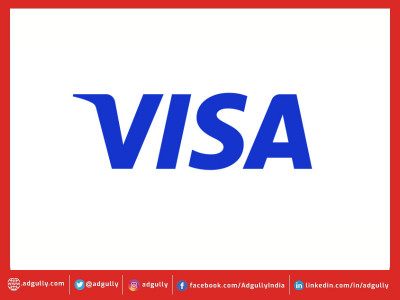Things to consider when travelling to the Schengen area
Schengen, which includes 26 European countries, has eliminated passport control and internal border checks, making travel between these countries smooth and hassle-free. It’s pretty amazing being able to effortlessly traverse from, say, France to Italy just like you would state to state back home.
But don’t let this freedom fool you into thinking there’s nothing to prepare. Travel in the Schengen Area still warrants research and planning if you want your holiday to unfold without a hitch.
Have Proper Documentation for Entry
Any experienced traveller knows that forgetting valid passport paperwork thwarts border entry in its tracks. When entering the Schengen Area, guards will reject access if a traveller's passport lacks at least 90 days of validity before expiring. So visitors should be vigilant and double- or triple-check passports to meet visa rules and avoid vacation disasters.
Additionally, travellers must investigate beforehand if their nationality requires applying for specific Schengen visas or if they qualify for automatic 90-day visa-free entry status. These regulations vary widely depending on the home country, so travellers should verify which statute applies to them before attempting border clearance protocols. Lastly, carrying readily accessible Schengen travel insurance or a certificate during the arrival process proves useful, too. While not always an absolute requirement, immigration personnel can randomly ask to view proof of adequate overseas medical coverage from visitors at external border checkpoints or international airport outposts.
Understand the Schengen Area Rules Thoroughly
Since the Schengen area functions as a single jurisdiction for travel purposes, it is critical to understand the zone’s regulations thoroughly. For example, visitors can only remain in the Schengen area for 90 days maximum out of a 180-day period without obtaining a specialised long-stay visa. Carefully verify that your planned country-by-country itinerary follows all Schengen-wide statutes for legal entry and stays.
Research Current Border Control Statuses
While passport control has been eliminated at internal Schengen borders, temporary enforcement checks at certain external land borders are still in effect as of 2023. There are ongoing checks at select borders for Austria, Denmark, France, Germany, Norway and Sweden due to recent migration influxes. Have proper identification documents ready to show when crossing one of these monitored borders.
Confirm Entry Rules for Non-Schengen Itineraries
In addition to internal Schengen destinations, verify entry and visa statutes for any planned side visits to non-Schengen European countries during your travels. Neighbouring European countries like the UK, Ireland, Cyprus, Croatia and Bulgaria, for example, have independent visa and passport control policies. Research these fully if visiting before your trip.
Evaluate Transportation Options for Seamless Travel
One tremendous advantage when journeying across the passport-free Schengen zone is having abundant transportation options between member countries. Thoroughly research routes, schedules and carriers connecting your must-see Schengen destinations, whether travelling by plane, high-speed rail, long-distance bus or ferry. Multi-country rail passes like the Eurail Global Pass offer potential savings for train journeys.
Confirm Country-Specific Rules on Entry
While Schengen countries participate in common visa waiver agreements, member states can choose to enforce separate regulations for border entry too, regarding proof of lodging, financial means, onward tickets and other national statutes. Investigate if any destination country in your travel itinerary mandates additional entry guidelines on top of the standard Europe-wide Schengen visa regulations.
Have Valid Travel Insurance for Europe
Acquiring comprehensive travel insurance for Schengen that specifically covers medical emergencies, trip cancellations, lost baggage, and other common issues for overseas tourists is extremely advisable before a European holiday. Thoroughly compare the best travel insurance providers on included coverage provisions, total policy limits, company reputation and premium costs before purchasing the optimal plan for your budget and risk tolerance level.
Prepare Extensive Lodging Documentation
When going through passport control into any Schengen nation, immigration authorities can request you provide comprehensive documentation of planned lodging arrangements within the zone. Have on hand confirmations for all booked hotels, short-term apartment rentals, hostel stays or planned accommodation with friends. Printed booking forms should display full property addresses, contact information and your reservation details. Backup digital copies are wise, too.
Prove You Have Adequate Financial Means
To successfully clear passport control, Schengen officials need proof that visitors have sufficient financial assets to fully provide for themselves without seeking illegal work or relying on public assistance during their intended term of stay within the region. Come prepared to prove you meet income requirements by carrying the latest bank account statements, recent pay stubs if employed, a pre-paid traveller’s check card and reserve cash in Euro currency.
Respect All Local Laws and Cultural Practices
Every sovereign country across the immense Schengen zone has established laws plus ingrained cultural traditions that should be respected when visiting as an international tourist. Thoroughly research specific legal codes and social decorum norms across each unique destination in your travel itinerary regarding behaviour, dress, photography permissions, drug and alcohol usage, political protests, LGBTQ+ rights etc. Strictly avoid any and all activities locally deemed offensive, excessively intrusive or outright criminal. Ignorance of the law or customs is never an excuse.
Public Behavior Laws
Importantly, many Schengen countries legally enforce various public behaviour statutes banning activities like public intoxication, drunkenness, disorderly conduct, aggressive panhandling, lewd acts, or excessive noise at night. Fines or arrests can result. Know these public codes.
Photography & Surveillance Restrictions
Be aware that actively conducting extended video recording or extensive photography of government buildings, military facilities, infrastructure sites, or security checkpoints is likely prohibited or, at minimum, viewed with suspicion. Also, note some Schengen states allow public street surveillance, so assume you can be recorded in cities.
Political Protest Laws
Actively participating in unsanctioned public political protests or demonstrations beyond simply observing risks legal prosecution for civil disobedience or resisting police orders in most jurisdictions. This includes damaging property or ignoring orders to disburse. Know relevant laws on protest and free speech versus acts of public disruption.
LGBTQ+ Rights
Lastly, research on LGBTQ+ rights, considering some Schengen countries are more progressive on issues like legal protections, same-sex unions and adoption rights versus others having no recognition or outright discrimination against sexual minorities. Be aware of varied legal rights by destination.
Download Essential Mobile Apps for Navigation & Translations
Smartphone map applications and transport schedule apps prove invaluable for independently navigating extensive unfamiliar metropolitan areas, complicated public transit networks, and intercity transport across the Schengen region. Have guides like Google Maps installed, plus vital translator apps to bridge language barriers. Checking that your phone plan provides ample data abroad or downloading city maps for offline usage is wise as well.
Make Multiple Copies of Essential Travel Documentation
Always make several photocopied and digital backups of your valid passport, travel insurance certificates, any required visas, accommodation confirmations, and return travel tickets or invoices. Keep copies physically separated from the originals in your baggage in case of accidental loss or theft abroad. Also, store encrypted digital copies online in cloud storage and email in addition to your phone. This provides vital redundancy to restore any lost or damaged documents quickly.
Know Who to Immediately Contact for Any Travel Emergencies
Well before the departure date, clearly identify and save emergency services numbers for each specific region on your multi-country Schengen itinerary on your phone. Additionally, look up and note contact details for the nearest embassy or consular office for your home country regarding each destination city or town you intend to visit. Review recommended protocols on what to do first and who to call for medical issues, lost documents, legal troubles, transportation problems, natural disasters or civil unrest abroad during your trip.
The Bottom Line
Properly preparing for all aspects of your Schengen area journey using these tips will help ensure your travels unfold smoothly and safely as you explore the many unique countries of this passport-free European zone conveniently with just one standard visa type. Check official government sources often when planning for any changes to entry regulations across this dynamic region. Enjoy the flexibility of effortless train, bus and air travel across continental Europe!


















Share
Facebook
YouTube
Tweet
Twitter
LinkedIn